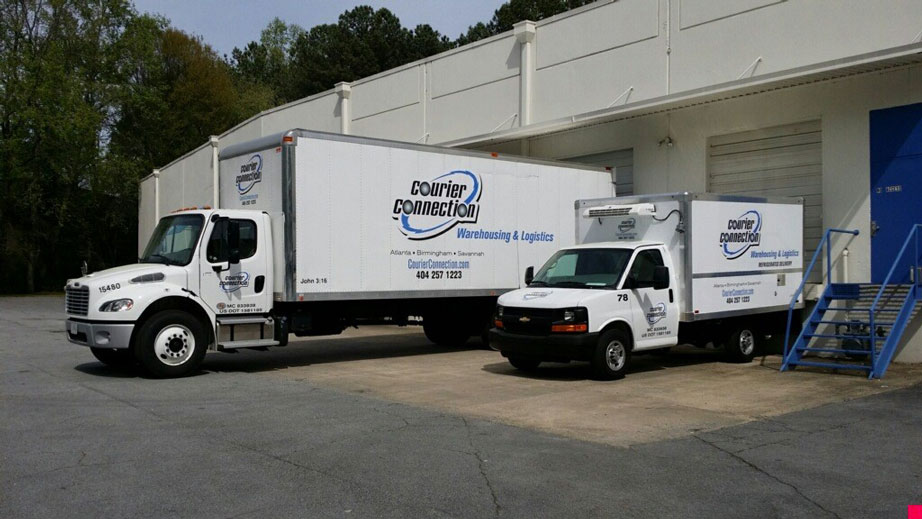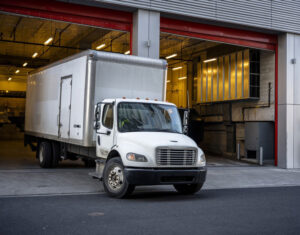Table of Contents
Running a reefer delivery service can be an exciting venture, but it’s not without its challenges. To safeguard your business and ensure its long-term success, acquiring business insurance is not just a choice; it’s a necessity.
Why, you ask? Well, imagine the unthinkable: a sudden breakdown in your refrigerated trailer, spoiling a high-value cargo of perishable goods. Without the right coverage, you’d be left with a hefty bill and potentially face financial ruin. This is where business insurance comes to your rescue.
Now, think about how to get that much-needed business insurance. Start by researching reputable insurance providers that specialize in transportation and logistics. Contact them directly or work with a trusted insurance broker who can help you navigate the intricacies of policies tailored to reefer delivery services.
But what’s in it for you? The benefits of securing business insurance are manifold. Firstly, it offers peace of mind, knowing that you’re protected against unforeseen events. Additionally, it enhances your credibility with clients and partners, potentially attracting more business.
In a world where risks abound, business insurance isn’t just a smart move; it’s a strategic one that can set your reefer delivery service on the path to lasting success.
To get business insurance for reefer delivery services, follow these steps:
- Determine Your Insurance Needs
- Find an Insurance Provider
- Meet Insurance Requirements
- Customize Your Coverage
- Understand Policy Limits and Deductibles
- Obtain Certificates of Insurance
- Maintain Records
- Review and Update Regularly
- Work with a Legal Advisor
Recap
1. Determine Your Insurance Needs
Assess the specific risks associated with your reefer delivery business. Consider factors like the type of cargo you transport, the distance of your deliveries, and any regulatory requirements in your area.
Choose an insurance type such as:
Commercial Auto Insurance
Covers vehicles used for business purposes, including reefer trucks. Commercial Auto Insurance is essential for your business that relies on vehicles to operate. Whether you have a fleet of delivery vans, reefer trucks, or company cars, this coverage safeguards your assets and provides financial protection in case of accidents or damage. It’s a crucial aspect of risk management, ensuring that your business can continue running smoothly.
Cargo Insurance
Protects the value of the goods you’re transporting in case of damage or loss. Cargo insurance complements this by safeguarding the value of the goods you transport. Whether you’re shipping delicate electronics or perishable goods, unexpected incidents can lead to loss or damage. Cargo insurance steps in to cover these losses, giving you peace of mind and allowing your business to fulfill its commitments.
General Liability Insurance
Provides coverage for accidents or injuries that occur on your business premises or during deliveries. This insurance shields your business from legal and financial consequences arising from accidents, injuries, or property damage.
Workers' Compensation Insurance
Required if you have employees; it covers their medical expenses and lost wages if they’re injured on the job. Workers’ compensation insurance is not just a requirement but a moral responsibility. It ensures that your employees receive proper medical care and compensation if they get injured on the job, fostering a safer and more secure work environment.
2. Find an Insurance Provider
Look for insurance companies or brokers experienced in providing coverage for transportation and delivery businesses. Consider getting quotes from multiple providers to compare rates and coverage options.
So, when you are searching for insurance for your transportation and delivery business, it’s crucial to focus on experienced companies or brokers. It possesses the expertise needed to understand the unique risks in your industry. Don’t settle for the first option; instead, gather quotes from several providers. This step allows you to make an informed decision by comparing rates and coverage options. Remember, your business’s success depends on making prudent choices, and comprehensive insurance is an essential part of safeguarding your operations. So, take your time, evaluate your choices, and select the insurance partner that best suits your specific needs and budget.
3. Meet Insurance Requirements
Be well-prepared when it comes to meeting insurance prerequisites. Your state or local authorities, along with your clients or partners, may enforce specific insurance mandates. These could encompass minimum coverage thresholds or other stipulations. Failing to comply with these can result in legal complications or lost business opportunities.
Therefore, you must familiarize yourself with the precise insurance demands of your jurisdiction and your business associates. By doing so, you not only demonstrate professionalism and reliability but also safeguard your interests and reputation in the eyes of both legal authorities and potential collaborators.
4. Customize Your Coverage
Work with the insurance provider to customize your policies to match your business’s unique needs. Ensure that your reefer equipment and cargo are adequately covered.
When it comes to safeguarding your business, collaboration with your insurance provider is pivotal. To adequately protect your interests, tailor your insurance policies to align with your business’s distinct requirements.
This is especially crucial for you if your business deals with reefer equipment and cargo. Ensuring comprehensive coverage for these assets is non-negotiable. Reefer equipment, with its temperature-sensitive cargo, demands special attention. Work closely with your insurance provider to address any potential risks and guarantee that your policies provide the level of protection essential for your business’s operations. By customizing your insurance coverage, you can rest assured that your unique needs are met, securing the future of your enterprise.
5. Understand Policy Limits and Deductibles
When it comes to insurance, it’s crucial to adhere to policy limits and deductibles. Policy limits signify the utmost amount your insurance may cover in case of a claim. It’s vital to ensure these limits align with your needs and potential risks. High limits may provide robust coverage but could strain your budget. Deductibles, on the other hand, are what you pay before your insurance takes over.
Opt for deductibles that match your financial comfort zone. A higher deductible usually results in lower premiums but requires you to cover more expenses initially. Balancing these factors is key to securing insurance that suits both your budget and risk tolerance.
6. Obtain Certificates of Insurance
You may need to provide certificates of insurance to clients or partners as proof of coverage. Ensure that you can easily obtain these documents from your insurance provider. Understand the significance of providing certificates of insurance to clients or partners. These documents serve as tangible evidence of your coverage, instilling trust and confidence in your business relationships. To maintain professionalism, establish a streamlined process with your insurance provider for swift access to these certificates.
This ensures you’re always prepared to meet contractual obligations and demonstrate your commitment to responsible risk management. In the complex world of business, a proactive approach to insurance documentation can be a pivotal asset, safeguarding your reputation and fostering strong, enduring partnerships.
7. Maintain Records
Maintain meticulous records of your insurance policies, including payment history and any claims you’ve submitted. These records are your lifeline in the event you must file a claim. By doing so, you ensure a smooth and efficient process, sparing yourself unnecessary hassles. So, take heed and organize your insurance paperwork diligently; it’s your safeguard against unforeseen events.
>>>PRO TIPS: Reefer Business Accessories You Need to Succeed
8. Review and Update Regularly
As your reefer delivery business grows or changes, periodically review and update your insurance coverage to ensure it continues to meet your needs.
It’s crucial for your reefer delivery business to adapt to growth or shifts. Regularly assessing and modifying your insurance coverage is vital. This ensures that it remains aligned with your evolving requirements. Insurance safeguards your business from unforeseen challenges, such as accidents or damage to perishable goods. By staying proactive, you maintain a robust safety net that instills confidence in your operations. Thus, as you navigate the dynamic landscape of the reefer delivery industry, remember that updating your insurance is a strategic move, safeguarding your business and ensuring uninterrupted success.
9. Work with a Legal Advisor
It’s important to contemplate seeking counsel from a legal professional or an insurance expert when it comes to safeguarding your business. This is not a matter to be taken lightly. Ensuring that you possess the appropriate coverage is paramount to shielding your enterprise from unforeseen risks and liabilities. Without proper guidance, you might inadvertently leave gaps in your protection, potentially exposing your business to financial jeopardy.
Legal advisors possess the expertise to navigate intricate regulatory landscapes, while insurance experts can tailor policies to your specific needs. Collaborating with these professionals is a proactive step in fortifying your business against potential legal and financial setbacks.
Recap
Pay attention to policy limits (the maximum amount the insurance will pay) and deductibles (the amount you’ll pay out of pocket before insurance kicks in). Make sure they align with your budget and risk tolerance.
Keep thorough records of your insurance policies, payments, and any claims made. This will be essential in case you need to file a claim.
Consider consulting with a legal advisor or insurance expert to ensure you have the right coverage in place to adequately protect your business.



















